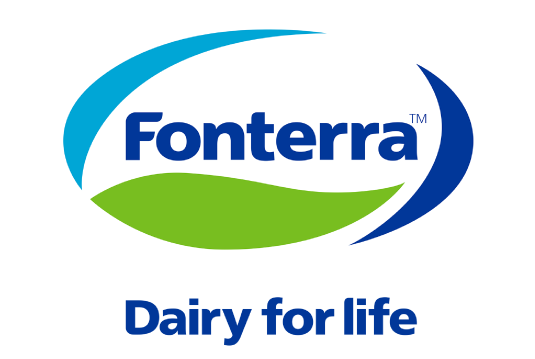Digestive wellness and the power of probiotics
Our gut is often referred to as our second brain. It’s why we get a ‘gut feeling’ about something when we’re making difficult decisions or those butterflies in our stomach when we’re nervous.
Our brain and gut are connected by the nervous system and research is uncovering how changes in our gut can affect us emotionally, physically and in our behaviour.
A healthy gut is important for a healthy you as the gut and brain are connected through a number of pathways, including our immune system and by trillions of neurotransmitters – chemical messengers that can boost and balance signals between nerve cells. Some neurotransmitters produced in the brain help control feelings and emotions and the same neurotransmitters are also produced in the gut.
However, many consumers are confused about exactly what gut health foods they should be consuming. So, as with many aspects of their life, they’re doing their own research online and making decisions based on those findings. What was once considered a little left field is now finding social acceptance in the mainstream (think kombucha, kimchi, kefir).
Milk and digestive wellness
Milk has a large role to play in good digestive wellness. It contains many nutrients including calcium, potassium, and vitamins A, and B12, which help your body by improving digestion, energy levels, eyesight and maintaining healthy blood pressure. Some of the best sources of these milk nutrients are full-fat milk, cheese and yoghurt. Significant research is being done to learn more about how nutrition across all life stages may impact the gut-brain axis. Smarter Lives is funded by New Zealand’s Ministry of Business, Innovation and Employment, and led by New Zealand research institute, AgResearch with support from Fonterra.
It is investigating how foods influence brain function through the various connections between the gut and the brain. The Smarter Lives research programme will build on existing research and unlock how we can influence the two-way communication between the gut and the brain and help optimise cognitive development across all life stages.
How probiotics help
These days probiotics has become somewhat of a buzz word. From boosting immunity to improving digestion, probiotics have been touted as the “superhero” of the gut bacteria underworld.
Basically, probiotics are live bacteria and yeasts which are especially good for our gut health. There are trillions of bacteria living in our digestive systems – this is our gut microbiome which helps us digest food and can protect us from invading bad bacteria.
Dr James Dekker, Probiotics Scientist at Fonterra’s Research and Development Centre says we are reaching a cross roads when it comes to the study of gut bacteria.
There is a lot of work going on right now into the gut brain axis, how does what happens in our gut affect our brain and vice versa? It’s an exciting area of research and dairy has a big role to play.
“Everybody has a unique microflora in their gut, so it is possible that how one person reacts to a certain strain of probiotic could be quite different to how another person reacts. This can make studying the effects of these bacteria challenging.”
Palmerston North is home to some of the world’s best probiotics. The Microbial Fermentation Unit (MFU), at Fonterra’s Research & Development Centre, handle well over 300 strains used in the dairy industry, including probiotics.
Pierre Venter, Fonterra’s Director Research and Development says Fonterra has proven success when it comes to probiotics and is partnering with the New Zealand Institute for Plant and Food Research Ltd to further understand their benefits.
“To date our LactoB 001 (DR20TM), has been clinically proven to help treat children’s eczema, and also given some indications that it can reduce post-natal anxiety by 45% and gestational diabetes by 68%.”
“Our commercialised probiotic strain BifidoB 019 (DR10TM) can be found commercially in Anchor ImmunoHalo and Anmum Toddler Milk. Given its proven benefits, many of our customers also use this strain in their food and beverage products.”
Probiotics and yoghurt
Yoghurt is thought to have been discovered in Central Asia around 6000 BC by herdsmen, who found milk being carried in containers curdled and changed into a substance that lasted longer. Nowadays, many yoghurts are regarded as a superfood full of probiotics – live bacteria that are especially good for our digestive system.
Probiotic dairy is a mature market in Europe and the USA and is growing in market share across Asia. According to the FMCG Gurus: Probiotics Survey consumer motivations to buy probiotics are primarily health based; 73% disclosed that their motivation for using probiotic products was to support digestive health, followed by 71% who said it was to help boost their immune system.
Most consumers think probiotics are good for reducing bloating and increasing physical energy. Other reasons consumers take them include improving digestion, immunity, weight management, and heart health while some specific strains of yoghurt bacteria/probiotics have been shown to improve lactose digestion in lactose-intolerant people.
With the wide range of yoghurts available, it can be difficult to decide which one is the right for you. Greek yoghurt is generally higher in protein than traditional yoghurt. Plain Greek yoghurt is also lower in sugar and carbohydrates.
Yoghurt opened the eyes of consumers to products like kefir cultured, fermented drink. Kefir is made by adding live yeast and bacteria cultures to cow’s milk and leaving it to ferment. It has grown in popularity due to the good bacteria it contains, supporting digestive health.

